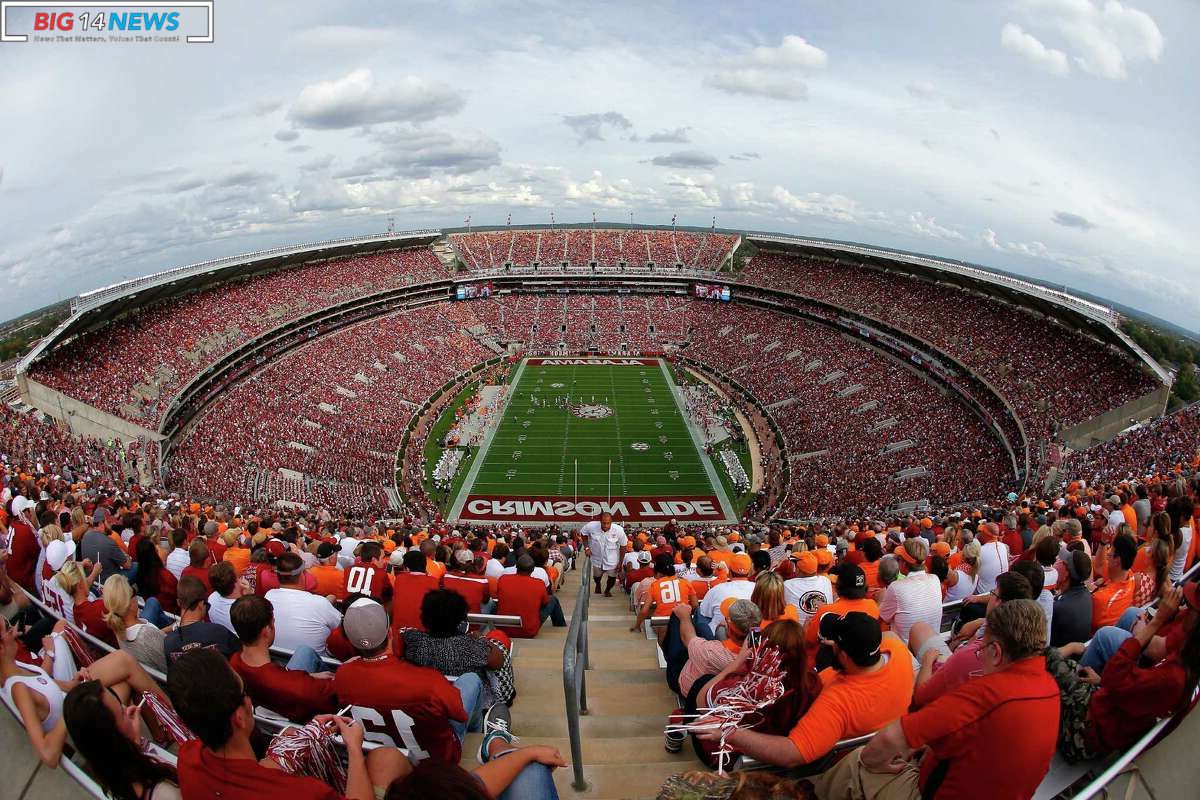Biggest Stadiums in Alabama:
Bryant-Denny Stadium Capacity: 100,077
Situated on the grounds of the University of Alabama in Tuscaloosa, Bryant-Denny Stadium stands as the grandest and most prestigious venue on our roster. Exclusively housing the Alabama Crimson Tide football team, it boasts the rarity of a natural grass field, setting it apart from other college stadiums. The stadium’s origins trace back to its opening in 1929, with subsequent expansions occurring on eight distinct occasions. Fueled by the Crimson Tide’s enduring success, Bryant-Denny Stadium is hailed as the epitome of college football arenas.
Nestled in western Alabama, Tuscaloosa County is home to a vibrant community of 105,000 residents. The vicinity surrounding the stadium buzzes with local bars and fervent Crimson Tide enthusiasts, creating an atmosphere that embodies the true spirit of college football. For any avid college football fan, Tuscaloosa is an essential pilgrimage, offering an experience unlike any other.
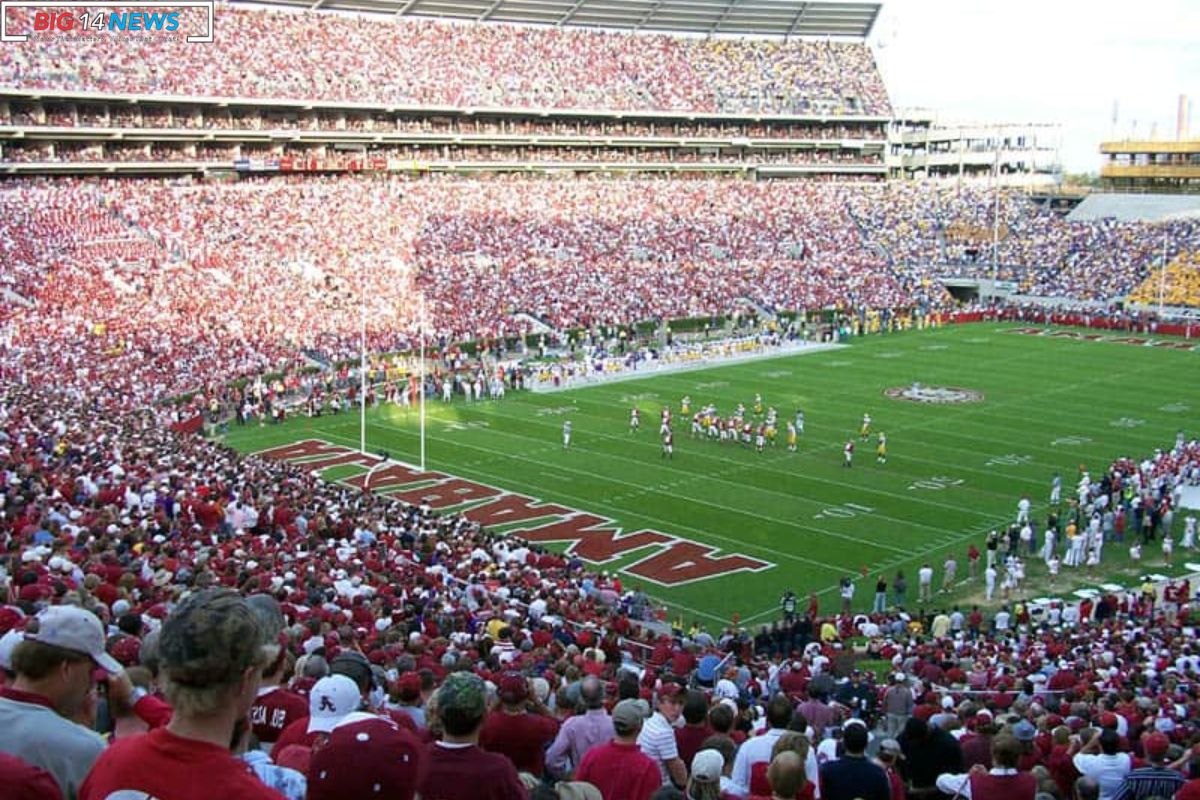
ALSO READ: Multiple Alabama Restaurants: Guy Fieri Diners, Drive-Ins and Dives
Jordan-Hare Stadium Capacity: 88,043
In 1939, Auburn University unveiled the expansive arena, Jordan-Hare Stadium, later enhancing its capacity to welcome over 88,000 fans. Situated on the Auburn campus, near Alabama’s eastern border with Georgia, this significant venue stands as the exclusive domain of the Auburn Tigers football team. Despite a brief stint hosting Auburn High School events, Jordan-Hare Stadium is synonymous with the Tigers’ gridiron prowess.
In anticipation of the 2007 season, Jordan-Hare Stadium underwent a substantial $2.9 million technological upgrade, elevating its capabilities. Beyond football, this multi-purpose facility transforms into a versatile venue, playing host to concerts and large-scale events. Notably, the stadium adheres to a policy prohibiting the sale of alcohol.
Auburn, the largest city in eastern Alabama, is celebrated for its picturesque sunsets and abundant outdoor activities. As the heart of the Auburn Tigers, Jordan-Hare Stadium stands as a testament to the university’s athletic legacy and the vibrant spirit of Auburn itself.
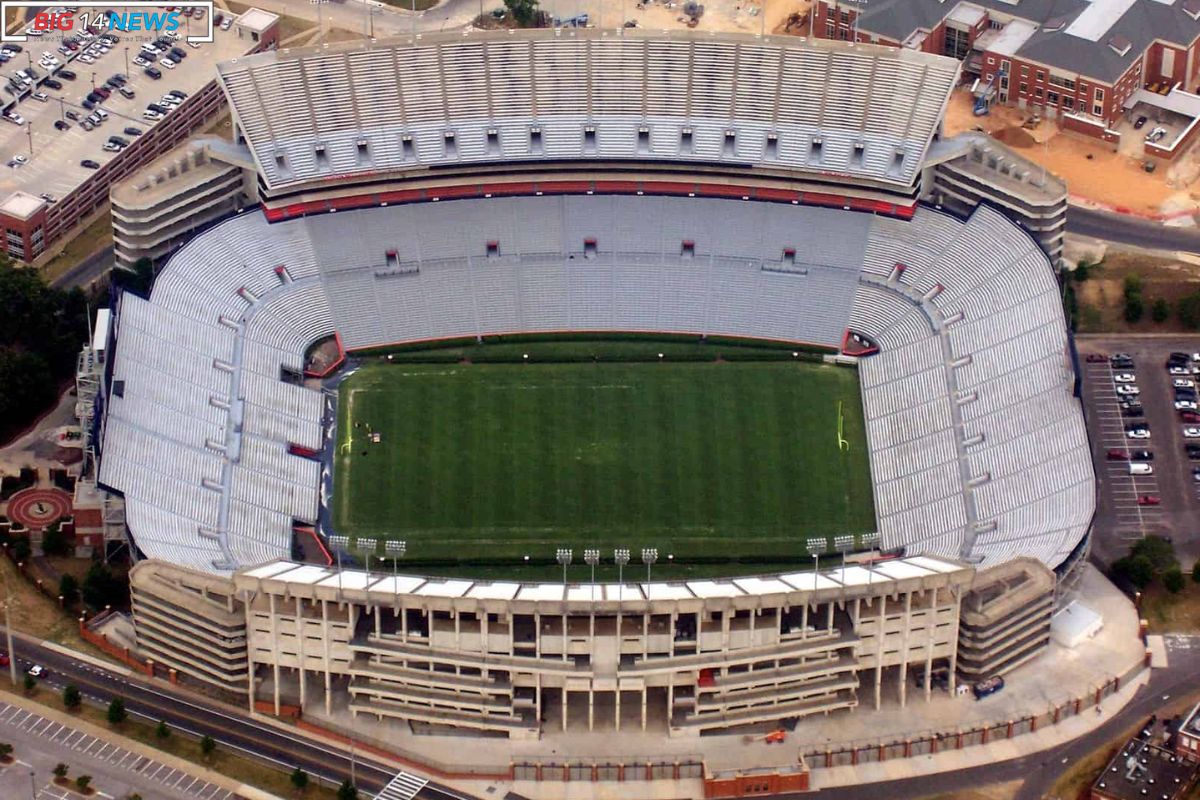
Legion Field Capacity: 71,594
Distinguished as the Old Gray Lady, Legion Field stands as an indelible chapter in the annals of college football history. Under city ownership and operation since 1927, it initially served as an alternative venue for the Alabama Crimson Tide until the late 1990s. Notably, Legion Field hosted the SEC Championship Game and the Iron Bowl, transitioning to accommodate various XFL and CFL teams in subsequent years. Though currently without permanent tenants, the esteemed Legion Field annually hosts the Magic City Classic.
Nestled in Birmingham, in close proximity to the recently developed downtown area, the stadium remains a historic landmark. Despite its absence of current occupants, Legion Field, with a maximum capacity of approximately 71,000 fans, continues to evolve as a versatile venue. Beyond football, it functions as a concert venue and amphitheater, offering a diverse range of events to the vibrant community.
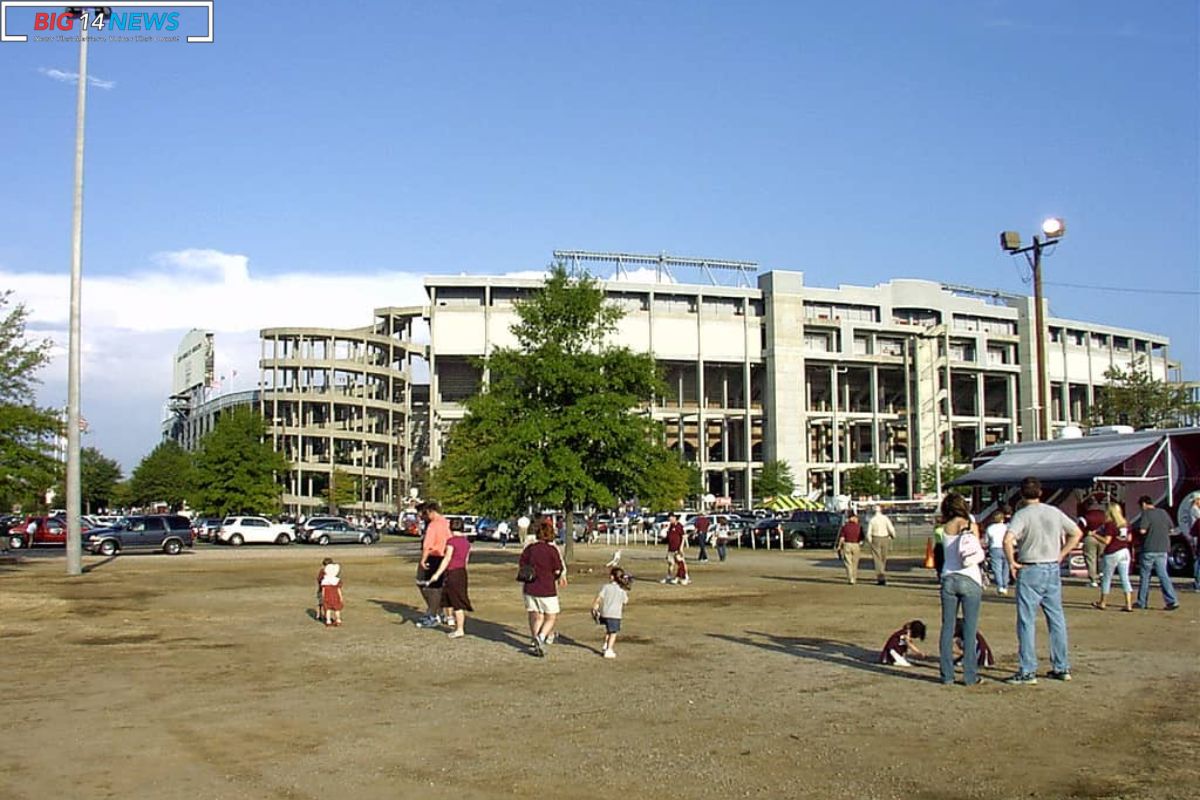
Protective Stadium Capacity: 47,100
Nestled in downtown Birmingham, Protective Stadium stands as Alabama’s most contemporary facility. In 2021, private owners unveiled this state-of-the-art arena after investing a staggering 175 million dollars in its construction. The modern marvel serves as the home turf for several esteemed tenants, including the University of Alabama at Birmingham Blazers. Notably, it hosts two USFL teams and the Legion FC USLC soccer team.
In a historic moment, Protective Stadium welcomed a record-breaking attendance of 50,000 fans during a Garth Brooks concert in 2022. This glamorous football field has swiftly become a cultural hub for diverse events.
Situated in the unique landscape between the Appalachian foothills and Red Mountain, downtown Birmingham reflects a distinctive charm. The city is experiencing remarkable growth, particularly in the technology and banking sectors, solidifying its status as a burgeoning economic hub. Protective Stadium not only stands as a testament to modern architecture but also contributes to the dynamic and evolving identity of Birmingham.
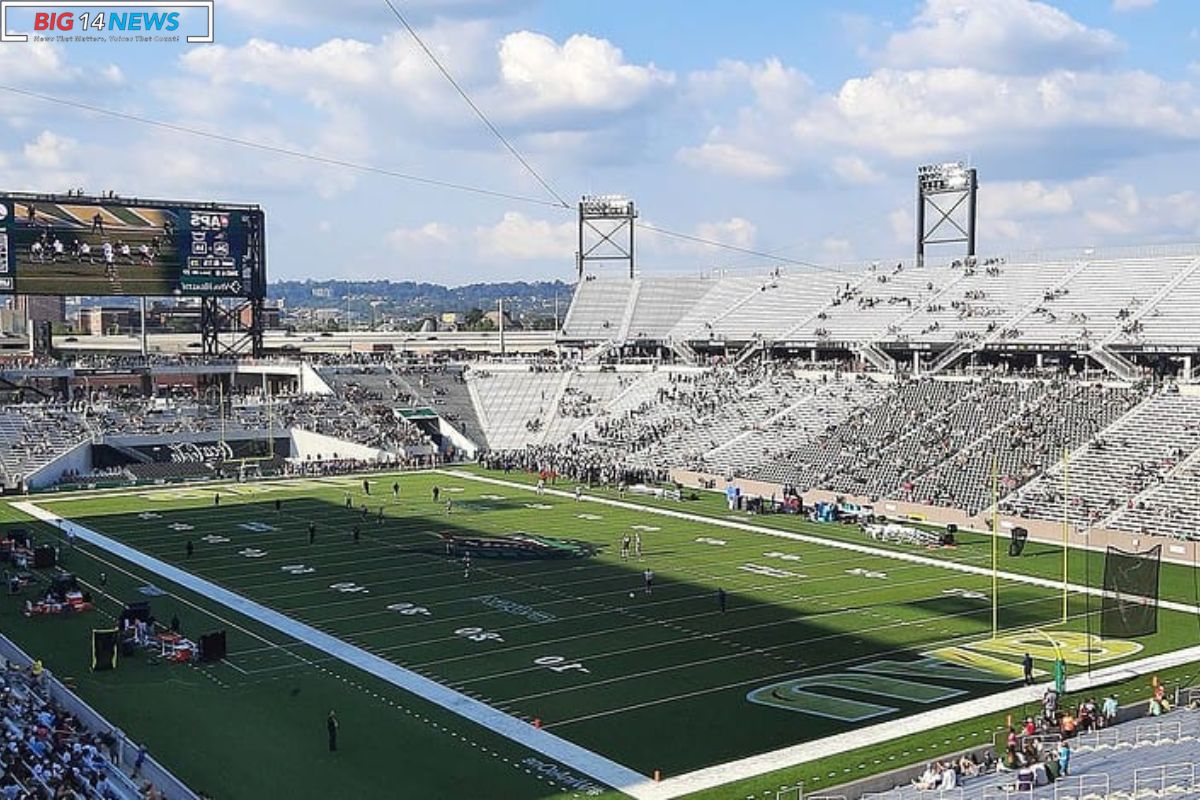
ASU Stadium Capacity: 26,500
In 2012, Alabama State University inaugurated its new facility, ASU Stadium, marking a move from the Cramton Bowl. Situated on the university’s Montgomery campus, this stadium proudly serves as the home field for the Hornets football team. While the current capacity stands at 26,500, plans are underway to expand the venue, aiming to accommodate an impressive 55,000 fans in the near future.
Montgomery, the backdrop to ASU Stadium, is steeped in historical significance, particularly during the Civil Rights Movement. The city witnessed pivotal events that shaped the course of this movement. Despite a complex past, Montgomery seamlessly blends Southern charm with modern infrastructure. As the state capital, it offers a delightful combination of delicious comfort food and a vibrant bar scene, making it an exceptional destination to explore.
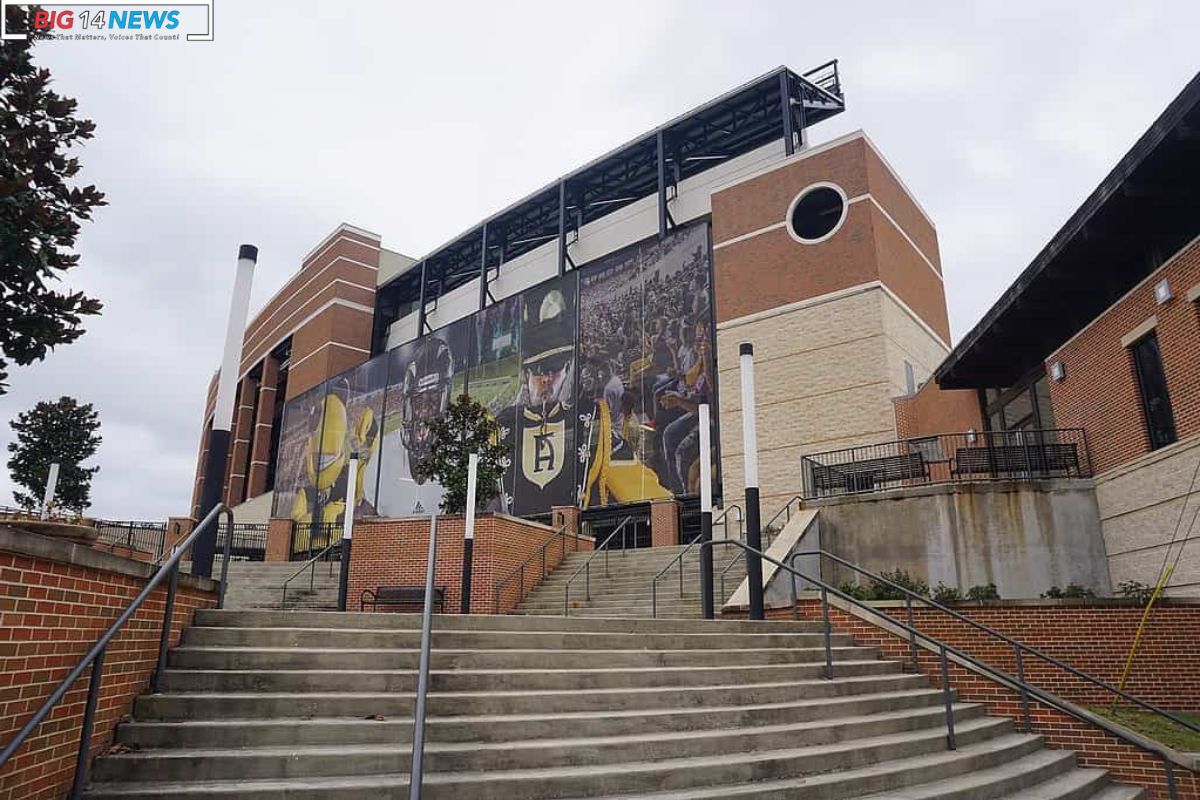
Hancock Whitney Stadium Capacity: 25,450
Opened in 2020, Hancock Whitney Stadium stands as the second most recently developed facility on our list. Nestled in Mobile, Alabama, this prominent football field serves as the proud home of the University of South Alabama Jaguars. Distinguished by its opulence, the stadium boasts 11 suites and 42 Loge boxes, making it one of the most luxurious venues in Alabama.
Equipped with a regulation turf field, Hancock Whitney Stadium plays host to prestigious events such as the annual 68 Ventures Bowl and the Senior Bowl all-star game. Mobile, located along the Gulf of Mexico’s waterfront and a mere 40 miles from the Mississippi border, is renowned for its sandy-white beaches on Dauphin Island. Beyond its natural beauty, Mobile is a cultural hub, participating in the annual Mardi Gras celebration and steeped in rich Southern cultural history. The stadium not only elevates the sports scene but also contributes to the vibrant tapestry of Mobile’s diverse offerings.
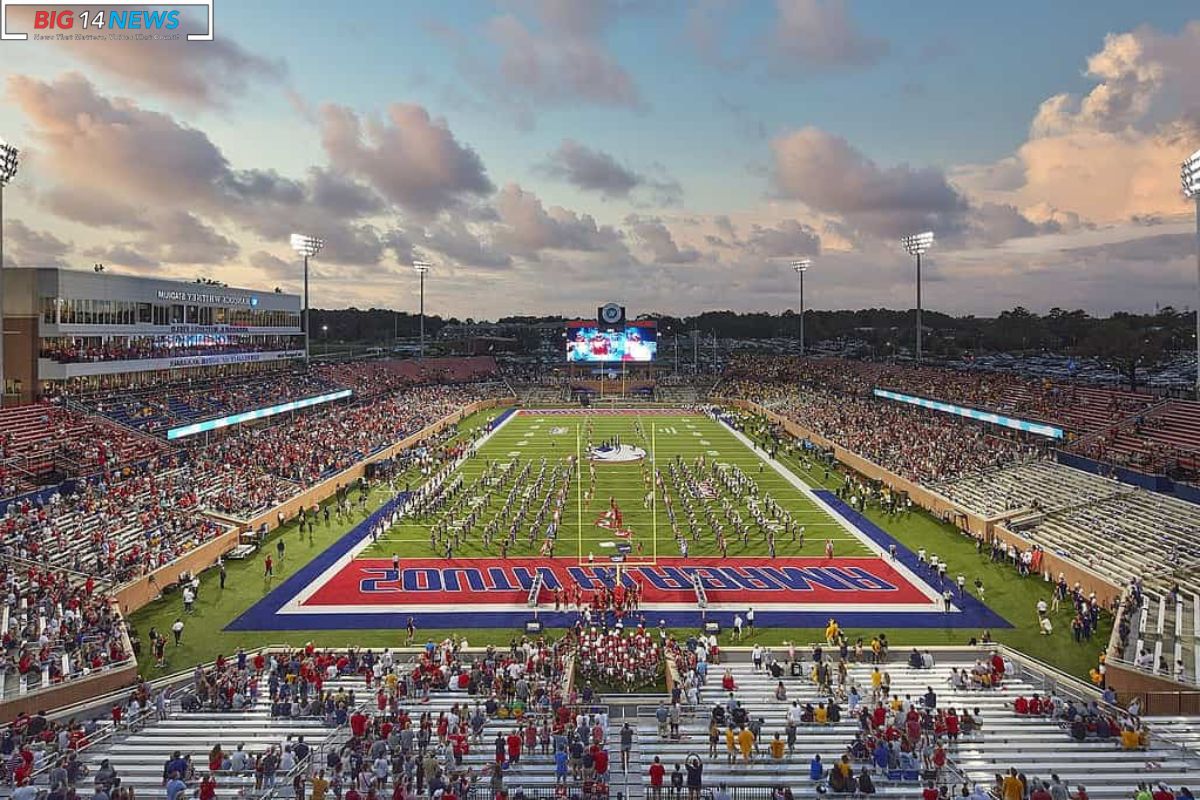
JSU Stadium Capacity: 24,000
Nestled in Jacksonville, Alabama, the JSU Stadium, also known as Burgess-Snow Field, stands as a versatile venue with a rich history. Constructed by the university in 1947, it proudly serves as the home to the Jacksonville State Gamecocks. Initially, the stadium shared its field with the Jacksonville High School football team until 2004.


In response to the growing fanbase, Jacksonville State undertook a renovation of the stadium in 2010, enhancing the facilities and installing a regulation turf field. The town of Jacksonville, situated in the Northeastern corner of Alabama, maintains a small-town charm with around 14,000 residents.
Despite the quaint suburban feel, the presence of Cheaha State Park offers outdoor enthusiasts a haven with camping accommodations, hiking trails, and prime fishing spots, adding to the town’s appeal.
Our Reader’s Queries
What is the largest stadium in Montgomery Alabama?
The Cramton Bowl is a massive 25,000-seat arena situated in Montgomery, Alabama. Originally built as a baseball stadium in 1922, it has hosted Major League Baseball spring training and minor league baseball games.
What is the biggest college stadiums?
The largest college football stadiums are the Michigan Stadium in Ann Arbor, MI (capacity: 107,061), Beaver Stadium in University Park, PA (capacity: 106,572), Ohio Stadium in Columbus, OH (capacity: 102,780), Kyle Field in College Station, TX (capacity: 102,733), and Tiger Stadium in Baton Rouge, LA (capacity: 102,231).
Is there a NFL stadium in Alabama?
Kyle Field, home of the Texas A&M Aggies, just barely beats out Tiger Stadium as the largest SEC stadium. It boasts an impressive seating capacity of 102,733, towering over the city of College Station, Texas.

